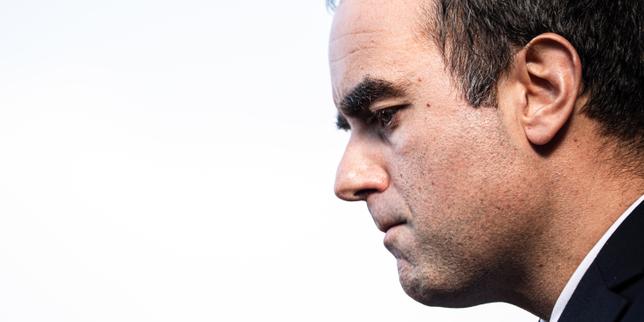New Lecornu II Government Faces Political Crisis and Economic Challenges in France
The newly formed Lecornu II government seeks to manage France's political crisis and difficult economic situation amid opposition challenges and looming budget deadlines.
- • The Lecornu II government includes 35 members blending politicians and civil society figures, aiming to surpass the political crisis.
- • France faces a major fiscal challenge with a 2024 deficit of 5.8% of GDP and mounting public debt, impacting economic growth.
- • Opposition parties including Mélenchon's and Le Pen's factions plan motions of censure against the government.
- • Monique Barbut's appointment as Minister of Ecological Transition highlights environmental priorities amid political turbulence.
Key details
The French government, led by Prime Minister Sébastien Lecornu, has been officially reshuffled with the publication of the new cabinet decree, embodying what Lecornu describes as a "mission government" tasked with overcoming the ongoing political crisis. The Lecornu II government includes 35 members, blending established politicians and fresh faces from civil society, such as Jean-Pierre Farandou as Minister of Labor and Solidarity, Monique Barbut as Minister of Ecological Transition, and Serge Papin overseeing SMEs, Commerce, Craftsmanship, and Tourism. Key ministers include Laurent Nunez at the Interior Ministry, Catherine Vautrin at the Armed Forces, Gérald Darmanin retaining Justice, and Roland Lescure leading the Economy ministry.
This new cabinet faces immediate and stringent demands, notably presenting the 2026 budget amid looming constitutional deadlines. France's fiscal situation remains precarious, with the 2024 public deficit at 5.8% of GDP (€169.6 billion), the worst since World War II outside of crisis, and public debt reaching 115.6% of GDP by mid-2025. The revised government target aims to reduce the deficit below 5% of GDP in 2026, a softer goal than initially planned. These economic pressures coincide with weakened growth prospects, as economic forecasts predict a mere 0.7% growth in 2025, with estimates for 2026 hovering around 0.9% to 1%. The political instability is expected to further impede investment and employment recovery.
Opposition is fierce, with leaders such as Jean-Luc Mélenchon condemning the government as a continuation of unpopular policies and signaling plans to file a motion of censure immediately. The Republican party reacts strongly, with its president Bruno Retailleau initiating exclusion procedures against party members joining the government. Additional motions of censure are also anticipated from Marine Le Pen's National Rally, raising questions about the government's stability, which may depend on the Socialist Party's parliamentary stance.
France's political turmoil has broader European implications, with the country lagging economically behind neighbors like Germany and the rest of the Eurozone, which is poised for moderate growth of around 1.3%-1.4%. Despite France's historic role as a European economic leader, the current crisis and fiscal uncertainty have diminished its standing as described by Bank of France Governor François Villeroy de Galhau.
Monique Barbut's appointment as Minister of Ecological Transition stands out as symbolic of a shift, given her expertise in climate negotiations and environmental policy. Her leadership begins at a critical moment ahead of the 30th Conference of the Parties in Belem, Brazil, amid calls for France to reclaim a leadership role in global climate efforts despite recent domestic setbacks.
In sum, the Lecornu II government embarks on its challenging tenure amidst a tense political atmosphere, pressing economic pressures, and heightened scrutiny from both domestic opposition and international observers, with the critical 2026 budget presentation looming as an immediate test of its efficacy and endurance.
This article was translated and synthesized from French sources, providing English-speaking readers with local perspectives.
Source articles (5)
Source comparison
Number of ministers in the new government
Sources disagree on the total number of ministers in the new government.
lemonde.fr
"The new government includes a total of 15 ministers."
ideal-investisseur.fr
"The newly formed Lecornu II government is marked by a blend of familiar faces and newcomers from the business sector, with eight of the 35 members coming from civil society."
Why this matters: One source states there are 15 ministers in the new government, while another mentions 35 members in total, which includes those from civil society. This discrepancy affects the understanding of the government's composition and structure.
Latest news
French Economy Minister Calls for Full Insurance Industry Mobilization Amid Devastating Storm Floods
France Boosts Social and Solidarity Economy with New Tools and Potential Tax Reforms in 2026
Saint-Nazaire Mayor Condemns Vandalism of Two Political Offices as Attack on Democracy
Severe Flooding Continues Across Southwest France Amid Ongoing Emergency Measures
Rise in Extreme Right-Wing Political Violence Shakes France Since 2022
2026 French Municipal Elections and Local Debates Reveal National Political Stakes
The top news stories in France
Delivered straight to your inbox each morning.



